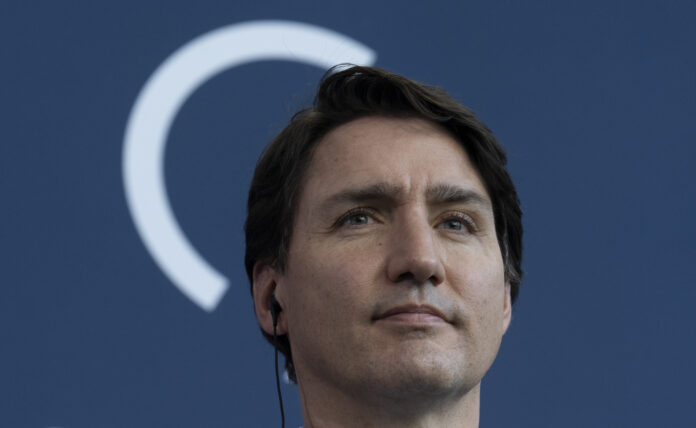Countering the threat that Russian President Vladimir Putin poses to democracies around the world will require those countries to confront floundering faith in public institutions among their citizens, Prime Minister Justin Trudeau said on Wednesday.
“Vladimir Putin is undoubtedly a threat to Ukrainians, and to people outside their borders. Even as we are clear-eyed about the challenges he presents, we mustn’t despair,” Trudeau said in a keynote address to the Munich Security Conference in Berlin, Germany.
“Democracy is always stronger than authoritarianism,” he added, before noting: “If we’re going to be honest with each other, democracy hasn’t exactly been at its best.”
Since Putin invaded Ukraine on Feb. 24, Western leaders have repeatedly emphasized that the Russian president underestimated the resolve of democratic countries and the NATO military alliance to respond.
Myriad rounds of sanctions are now in place against Russia, targeting the wealth of Putin and his inner circle as well as Russian companies and banks — including the Russian central bank that Deputy Prime Minister Chrystia Freeland frequently describes as Putin’s “war chest.”
The result has been a collapse in the value of the Russian currency and deep economic shockwaves, including ripple effects on the price of gas in the West.
Russia-Ukraine conflict: Sanctions pummel Russian economy – Feb 28, 2022
Trudeau said Western leaders are united in their resolve to make Putin pay for his invasion of sovereign Ukraine. But he said it is crucial for democracies to take stock of the rising apathy, cynicism, declining voter turnout and misinformation that is plaguing their citizenries.
Trending Stories
Canada to ship drone cameras to Ukraine amid war with Russia
6 Sunwing party plane passengers slapped with fines up to $5K, ‘more penalties’ coming
“It’s our job to rebuild that trust, to give people reasons to have faith in our institutions, to get involved in civic life,” Trudeau said.
“We can’t let fear, anxiety and envy overcome the hope, the earnest optimism, that is necessary for democracies to thrive. We can’t settle for simplistic answers to complex problems. We can’t let nativism distract from the hard work of building better systems.”
He added, “These challenges are not easy for any of us, but addressing them head on is essential.”
Sigmar Gabriel, former German vice-chancellor and chairman of the think-tank Atlantik-Brücke, spoke just before Trudeau at the conference and described the situation facing the world as a new “dark ages.”
“Until 10 days ago, we did not want to believe that Vladimir Putin would dare to invade its neighbour,” Gabriel said. “He wants to determine the future and fate of Europe again, and it’s not the old Soviet Union that serves as his model for this — it’s tsarist Russia.”
The Munich Security Conference is taking place just steps from the Brandenburg Gate.
Until the collapse of the Berlin Wall in 1989, the gate stood at the boundary between East Berlin and West Berlin. As Gabriel noted in his remarks, it was before the gate that former U.S. president Ronald Reagan demanded of Soviet leader Mikhail Gorbachev: “Tear down this wall.”
“No other buildings represent this difficult and war-torn history of Europe and Germany better than the Brandenburg Gate,” Gabriel said.
“Throughout the Cold War, it was the symbol of a world divided; a world in which two ideological blocks stood face-to-face, threatening mutually assured destruction with nuclear weapons. But it also stands for the ability to overcome dark ages.”
The question facing leaders now increasingly appears to be whether they can do so.
© 2022 Global News, a division of Corus Entertainment Inc.



